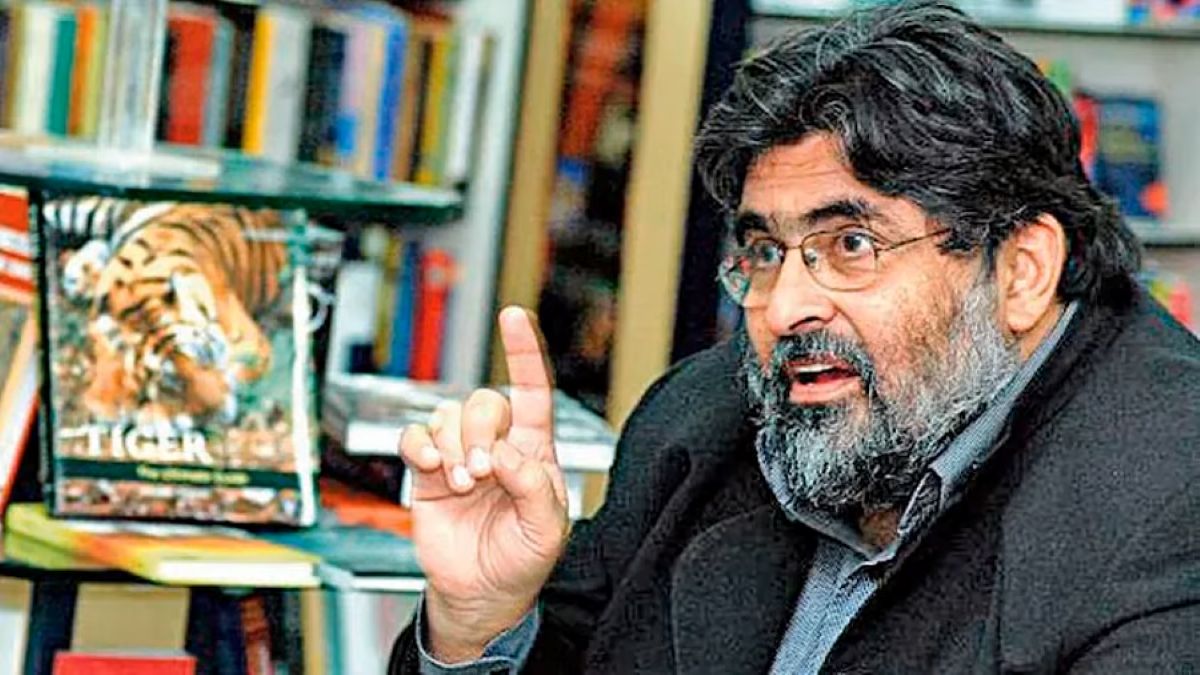
A voice for India’s wildlife silenced, but his legacy roars on
New Delhi | May 31, 2025 — India today mourns the loss of one of its most passionate wildlife defenders, Valmik Thapar, who passed away in New Delhi at the age of 73. A relentless advocate for tiger conservation, Thapar’s work transformed public attitudes, influenced policies, and inspired generations to care about the fate of the country’s wildest inhabitants.
From Urban Roots to Wild Heart
Born in 1952 into a family deeply involved in India’s intellectual and artistic fabric, Valmik Thapar was the son of journalist Romesh Thapar and nephew of eminent historian Romila Thapar. Despite his urban upbringing, his heart was captivated by India’s wilderness — especially its apex predator: the Bengal tiger.
His first life-changing encounter with wild tigers occurred in Ranthambore National Park in 1976, a place that became both his professional ground and spiritual sanctuary for decades.
Read Also: Fresh Surge in COVID-19 Cases Across India
Source: India Today
Ranthambore: The Birthplace of a Conservationist | Valmik Thapar
Valmik Thapar began his journey under the mentorship of Fateh Singh Rathore, another stalwart of Indian wildlife protection. From there, Thapar never looked back.
He eventually co-founded the Ranthambhore Foundation in 1988, an NGO focused on conservation through community involvement. The foundation aimed to improve local livelihoods while preserving natural ecosystems, pioneering a now-common approach in wildlife protection.
Valmik Thapar, a legendary figure in the world of conservation over the past four decades – especially tigers – has just passed away. It is a great loss.
Today’s Ranthambore, particularly, is a testimony to his deep commitment and indefatigable zeal. He was uncommonly… pic.twitter.com/6TP60wMleo
— Jairam Ramesh (@Jairam_Ramesh) May 31, 2025
Source: Jairam Ramesh
Taking Tigers to the World
Thapar was not only active in the jungle but also in front of the camera and behind the pen. He authored more than 25 books, including field guides and memoirs that highlighted the grandeur and fragility of the Indian tiger.
His 1997 documentary series, “Land of the Tiger” on BBC, is still considered one of the most compelling portrayals of India’s wildlife. It gave the world a glimpse into the country’s diverse ecosystems — and the looming threats they face.
From Forest to Policy
Thapar worked tirelessly on various committees for the Indian government, pushing for real, data-driven reforms in wildlife protection. Over the years, he served on more than 150 government and advisory panels.
Whether it was urging for better forest governance or challenging political indifference to environmental degradation, Valmik Thapar remained fiercely independent in his advocacy. He wasn’t afraid to criticise even the most powerful if it meant defending India’s natural heritage.
Speaking Truth to Power
Known for his candor, Thapar openly voiced concerns over the dilution of environmental policies and the sidelining of scientific experts in decision-making. He often took controversial stances, like calling for more autonomy for park managers and demanding better-trained forest staff.
In doing so, he inspired both admiration and opposition — but never indifference.
A Voice for the Voiceless
In one of his many interviews, Thapar famously said:
“Saving the tiger is about saving ourselves. When we protect forests, we protect water, air, and life.”
This simple truth captured the essence of his philosophy — that wildlife conservation is not a luxury but a necessity.
Family and Personal Life
Valmik Thapar is survived by his wife, Sanjna Kapoor, a noted theatre personality and daughter of actor Shashi Kapoor, and their son, Hamir Thapar. The couple shared a passion for storytelling — she through theatre, and he through nature.
Friends and family say Valmik Thapar was not just a conservationist but a deeply reflective thinker, with a reverence for both tradition and science.
A Final Goodbye
A cremation ceremony took place on Saturday afternoon at the Lodhi Electric Crematorium in Delhi. It was attended by fellow conservationists, artists, and public figures who gathered to honor a man who gave voice to the forests.
His Living Legacy
Thapar’s legacy lives on in the tigers that still roam the wilds of India — creatures he fought for when they had few advocates. His work contributed directly to India’s global reputation as a tiger stronghold, with the country now home to more than 70% of the world’s wild tiger population.
His field methods, community engagement models, and educational materials remain blueprints for conservation in India and beyond.
Tributes Pour In
Journalist Rajdeep Sardesai wrote on social media:
“The tiger has lost its best friend. Valmik Thapar was a chronicler, protector, and fighter for India’s wildest citizens. Fearless and fiery, like the creatures he loved.”
Other environmental leaders, politicians, and students echoed similar sentiments, with many pledging to carry his mission forward.
What He Taught Us
Valmik Thapar’s passing is a monumental loss, but his life offers lessons that endure:
- Conservation must be local and inclusive
- Education and storytelling are powerful tools for change
- Science should inform policy, not politics
- Protecting nature protects humanity itself
A Roar That Will Echo Forever
Valmik Thapar lived a life of purpose, rooted in truth, curiosity, and compassion for the natural world. Though he is no longer among us, his work lives on — in every tiger that prowls freely, in every student who picks up his books, and in every citizen moved to protect the earth.
The forests are quieter today, but his roar will echo through them for generations to come.







